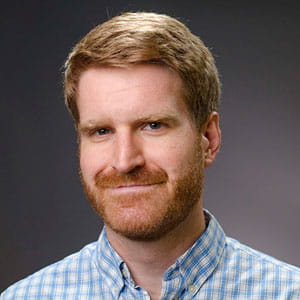After Years Helping Minority Students Succeed in Math and Science, Drexel Leader Receiving Honor

- ADHD Symptoms Predict Distinct Creative Problem-Solving Styles and Superior Solving Ability
- Philadelphia Communities Help AI Machine Learning Get Better at Spotting Gentrification
- MXene Nanomaterials Enter a New Dimension
- A Nanomaterial Flex — MXene Electrodes Help OLED Display Technology Shine, While Bending and Stretching

Stephen Cox believes that all students can succeed, if given the opportunity.
That might not seem like a bold position to take. But he’s had no trouble finding people who disagree — especially when, more than 20 years ago, he began working to increase minority participation in science and technology education.
“Many of the people just refused to believe that people of color can be involved in science and technology at this level,” Cox said. Minority students weren’t interested in math and science, people would say. But Cox didn’t buy it.
For the past 23 years, Cox has worked to increase underrepresented groups’ participation in the fields now commonly referred to as STEM: science, technology, engineering and mathematics. For the past 15 years, he’s done so at Drexel as the director of the Greater Philadelphia Region Louis Stokes Alliance for Minority Participation (LSAMP), a partnership of nine area universities aiming to help more African-American, Hispanic and Native American students earn bachelor’s and graduate degrees in the STEM fields.
Now, thanks in part to nominations from his colleagues at Drexel and elsewhere, he’s being recognized for those years of work on a national stage. At the Black Engineer of the Year Awards next month in Washington, D.C., he’ll receive the College-Level Promotion of Education award.
Since the National Science Foundation-funded LSAMP program began in Philadelphia in 1994, it has helped about 12,000 students earn degrees, with 350 of them reaching the PhD level. But there was a time when Cox thought such programs might not be able to stand in the face of doubts that urban minorities could ever find success in science and technology.
“I just didn’t think it was going to last,” Cox said. “So I am really surprised that 23 years later I can give you these statistics.”
Cox recognized decades ago that if entire segments of the U.S. populations were given no chance to become scientists and engineers, the country would have no hope of keeping up with rapidly developing nations around the world.
As a physicist and engineer he’s learned that a key to helping to develop scientists and engineers from urban student populations is to introduce them to the STEM fields early. To aspire to go into biomedical engineering or nanomanufacturing, he said, students first have to know that those fields exist, and some urban students may not run into many engineers or scientists in their communities.
For the LSAMP partnership, that means introducing the program’s students to scientific research as early as their freshman year. Some students might have never set foot in a lab when they come to college, Cox said, and an early introduction to research can get them thinking about what life might be like as a scientist.
“If you get them in early, the probability of their going to graduate school increases exponentially,” Cox said.
Now, as more and more LSAMP students graduate and move onto STEM-related careers, incoming students can see what’s possible. Every year, when he watches them walk across their graduation stages, Cox cries.
“The award thing is not as important to me,” he said. “My reward is seeing students walk across the stage, dispelling any previous misconceptions.”
In This Article
Drexel News is produced by
University Marketing and Communications.
